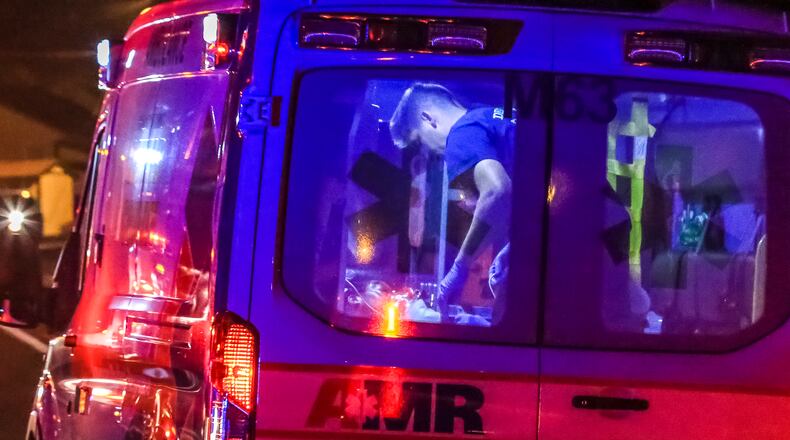It’s about to take a lot less time for an emergency transport to get to the scene of a life-threatening emergency in Dunwoody.
Under a memorandum of understanding the city is about to sign, DeKalb County is committing to nine-minute response times for ambulance services on critical calls. To achieve that, the county will add ambulances and improve technology, the agreement says.
“This is a positive step toward advanced life support improvements for Dunwoody,’’ said Councilman Terry Nall, who has been pushing for improved ambulance services. “It demonstrates our firm belief in Dunwoody that response times do matter.”
DeKalb oversees ambulance services in its unincorporated areas and a total of 13 cities, such as Dunwoody, within its 271-square mile territory.
For the last three years, Dunwoody residents have complained of wait times of more than 30 minutes on calls involving emergencies, including incidents where heart attack and accident victims were forced to wait for transport to the hospital.
Earlier this year, the city asked the state to allow it to withdraw from its ambulance service agreement with DeKalb and allow it to run its own program.
But, apparently, the two sides have ironed out their differences. Dunwoody Mayor Denis Shortal said in a prepared statement on Wednesday that he expected to urge his council to approve the agreement with DeKalb at a regular meeting on Monday.
DeKalb County CEO Michael Thurmond, in the same prepared statement, said both sides “worked cooperatively.”
American Medical Response, which contracts with DeKalb County to provide services, has blamed some of the lags in response to extreme traffic congestion in the Perimeter Center area, where tens of thousands of people travel to and from work every day. AMR also has said the slower responses are the result of long waits for available beds for patients transported to hospitals.
DeKalb says it has stationed three additional ambulances at fire stations in the northern portion of the county, which will enable ambulances to arrive faster. Those units will be dedicated to service areas of Dunwoody and parts of Brookhaven, Chamblee and Doraville. The agreement also says a fourth ambulance will be provided “during peak times to meet the needs required by the increased daytime population of the Perimeter Center area.”
Service to Dunwoody will be provided in nine minutes or less on 90% for critical life-threatening calls, and 15 minutes or less for basic life support calls, the deal says. Last year, the city said, the average response times were nearly 15 minutes for 90% of calls, both non-threatening and life-threatening. The norm is a response time of nine minutes on 90% of calls that are a potential life threat.
Thurmond told the AJC weeks ago that concerns about ambulance services in Dunwoody, as well as in other parts of the county, were of utmost concern.
“The lives and safety of our citizens are our number one priority,’’ Thurmond said.
Thurmond, who has been CEO since January 2017, promised to hold AMR accountable for response times under its contract, which was signed five years ago. The county has assessed AMR more than $1.5 million in fines for delayed response times and other service-related concerns. To resolve the case, AMR agreed to provide $1.3 million in additional resources, and it paid nearly $600,000 in cash to the county.
The company’s contract with the county expires Dec. 31, and DeKalb is expected to re-bid it. The county has hired a consultant to help it shape its next contract for ambulance services.
Under its agreement with Dunwoody, the county is promising to improve technology, including the GPS capability of ambulances, radio frequency identification gate access and traffic signal preemptive devices. Costs will be shared between the county and the city.
DeKalb also has agreed to provide monthly reports to Dunwoody officials that track ambulance response times.
The agreement is effective for a year.
Nall said it was a step in the right direction. However, “we still await implementation and have accountability and monitoring tasks we require of DeKalb County.”
About the Author
Keep Reading
The Latest
Featured



